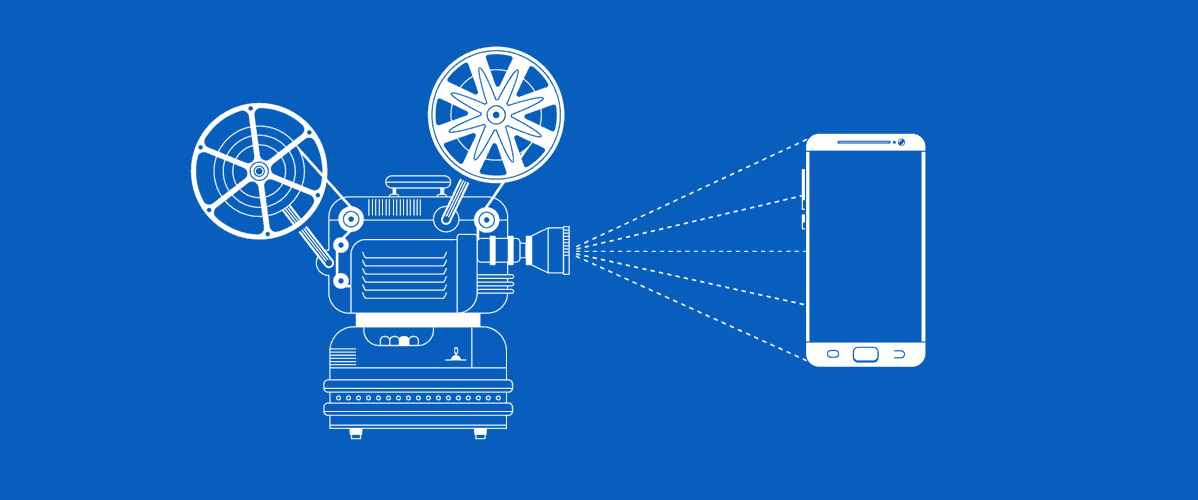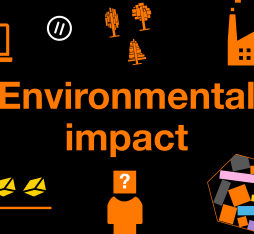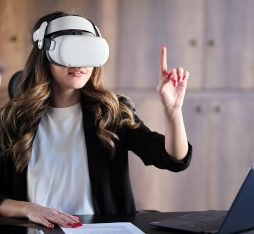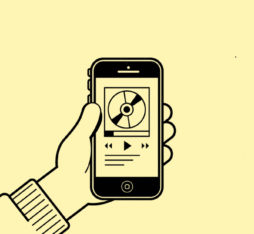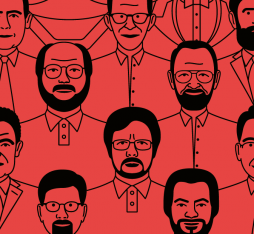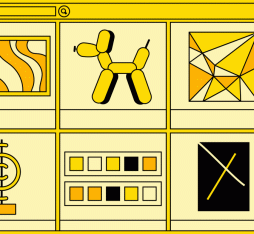Cinema and series like to imagine better or worse but it is often when they imagine the worst that they're the best!
In 1968, 2001, The Space Odyssey invented (in the cinema) ultra-realistic artificial intelligence HAL9000 and the tablet. Nearly fifty years after the release of the masterpiece by Stanley Kubrick, Xavier Perret, digital director at Orange France, had the idea of confronting the seventh art and technological innovation again with Guy Jacquemelle “Sponsored Data business development” at Orange, after their Big Data book: cinema had already imagined everything published at the end of 2014.
“In 2001, I saw Space Odyssey again with my 12 year old son and I came to realise that he saw totally different things in it. What my son lived, is a very modern story about the algorithms and robots, he says. The approach is very dated but he finds the substance in the magazines he reads such as Science & Vie. Do these old films, with a new look, not tell us about the digital world and big data, etc. that we live with from day to day?”
A century (almost) of robots
An idea developed into ten chapters by both authors in their new book: Help, my life is becoming digital! The script has already been written …, published by Kawa editions in September, 2016. As a didactic work that is also playful, it looks at a suspense film with contemporary reality, and especially at the digital transformation that each business or industry is currently experiencing, impacting users, employees and citizens.
“They say we live in a 4.0 industry moment where companies are becoming hyper connected. However, on this subject, there is an iconic film, because it is the first one, and this is Metropolis, released in 1927. That is to say that almost a century ago, people were wondering about robots that we are in turn questioning today”, explains Guy Jacquemelle.
Both authors point to other subjects such as the uberisation of society that we can find some basis of in Fight Club (1999), the gamification of the insurance sector in The Game (1997), questions on mass agri-food products via Soylent Green (1973) or the difficult relationship between science and data in Gattaca (1997).
The “Herbie” Beetle in the Google Car…
Another example? The Google Car. Demonstration by Xavier Perret: “Christine, by John Carpenter, this is a bit like the evil twin of the same car that lives its own life, or Herbie in the Beetle saga. It is not owned by anyone, except by itself. These are the questions about autonomous cars: Who is the master on board? Who is legally responsible? What algorithms will make the decisions and prevent accidents?” Guy Jacquemelle drives the point, recalling that connected cars are indeed a reality. “Already today in Australia, in the mines of Rio Tinto, there are hundreds of trucks that are autonomous, able to carry the ore to the production centres alone.”
Steven Spielberg, Tom Cruise and an iPhone
How is it possible that cinema could anticipate the future at this point? Whether is its Steven Spielberg, Stanley Kubrick or David Fincher, these directors are “stubborn or even obsessive”, says Xavier Perret. “During the preparation of the films, they surrounded themselves with scientists, technologists and skilled writers. The films that most envisaged the future are those that had a context that greatly exceeded that of the cinema.” Guy Jacquemelle establishes: “For Minority Report, Spielberg had worked with people at the Massachusetts Institute of Technology. When we see Tom Cruise flick through images quickly with his index finger, it precludes the arrival of the iPhone five or six years later.”
Is the series the future of suspense?
Today, the film industry seems to be lacking inspiration when it comes to the divination of innovation for the future. “We feel that it is easier to dream of the Consumers Electronics Show via inventions of new start-ups and films. It’s not technology that is limited but the imagination. The future is less disruptive than before. It leaves less room for creativity and imagination, relates Xavier Perret. Today, in thinking about the power of algorithms, their application in our societies, do robots have a soul, etc., we will find it in the series.”
Indeed, to imagine what the future will bring, it is better to turn to works such as Westworld, Black Mirror, Mr. Robot or even Real Humans. Works that depict a very fatalistic, anxious and threatening future use of technology. This is true, but as Guy Jacquemelle concludes, “cinema and series like to imagine better or worse but it is often when they imagine the worst that they’re the best!”

